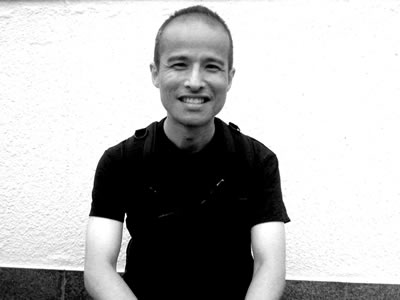This was another very good term with two wonderful ARW sections, BB and BH.
Thanks students!
Below are my reflections and some pondering of issues for future courses...
Reading Skills: I required submission of reading notes (summmary, critical reactions, and discussion questions) for every text we read, and almost all students kept up with submission. Ideally, this should be done on a class blog so that all students can see each other's ideas, but I did not require that because I wanted students to bring their ideas to every class and have the ease of just writing their ideas anywhere without having to go to a computer. Last Winter term, I did blogs, and students kept up with them, but complained about inconvenience for having to go to a computer...
So, what is the best balance? A paperless system (at least in terms of not having to collect notebooks) would be ideal...perhaps with annotation in the textbook to prepare ideas for discussion followed by a blog update on what was learned in the discussion? Also, should I designate some students as being in charge of preparing summary/reactions/discussion questions in advance of class? That would ensure that at least some students are well-prepared for discussion while for other students it will be up to them to prepare.
Another issue in reading is that "understanding the text" is taking too long in our discussion time, both as a small group and as a whole group. I want to spend more time on critical reactions and open discussion of opinions and related issues, but...it seems that students' grasp of the main ideas (or at least their ability to summarize them orally) is not at a high enough level to do a coherent critical discussion. The solution? Cut the number of required reading pages (as a whole ELP decision) or use texts that can be more easily grasped by our students.
As an example for readers who are not familiar with ICU's ELP, "
RACE WITHOUT COLOR" is a text our high intermediate (TOEFL 450 to 500ish) Japanese 1st year college EFL students at ICU would be required to read for homework over 4 to 5 days and discuss in one or two class periods of 70 minutes. In their notebooks, they would need to summarize and react and prepare for discussion as follows:
1) What is Diamond's thesis and supporting evidence?
2) What are the weaknesses of his argument? How could it be stronger?
3) What ideas of the text do you want to discuss? Prepare two stimulating discussion questions for your classmates.
Not an easy task. The idea is to make sure our students are ready to take college level classes in English, and this level of work will surely be required by non-Japanese professors who they take courses from at ICU or overseas schools...but are they really thriving on this type/level of assignment and class content? More examination seems needed. Perhaps a Focus Group interview would be enlightening.
Essay Writing Skills: Students wrote two research documented essays of 800-1000 words on any issue broadly related to "communication, culture, ethnicity, or race," with many students going over into 1200 or 1400 words. Most students made very tangible progress from Essay No.1 to No.2, so I was very happy to see that. I think almost all got a pretty good idea of the process of selecting a key word of interest, developing a meaningful research question such as "
Why has Christianity failed to become popular in Japan compared to Korea?" and research and organize ideas into an introduction, thesis and supporting paragraphs.
Some students had difficulty, but my feeling was that those were the students who underestimated(perhaps?) the time they would need to spend in the library to find sources and develop a supportable thesis on the topic. Students who started early were able to visit me, get advice in tutorials (one-on-one conferences), and develop their paper further. Students who started late often had very little to show me or discuss with me when we met for conferences.
So...what is the solution for helping the students who had difficulty? More examples of how an essay develops? More warning that research takes time and creativity and endurance?
In any case, I hope all of my students can say they developed their confidence as a reader/writer of academic materials and their ability to research, react to, and discuss critical issues. Is my hope real? Students did student evals, but I wonder if those will really show how they feel.
Need to do a focus group interviews!














